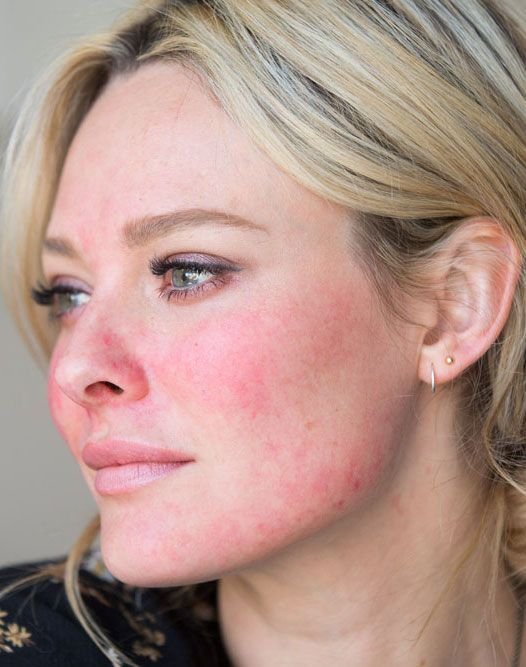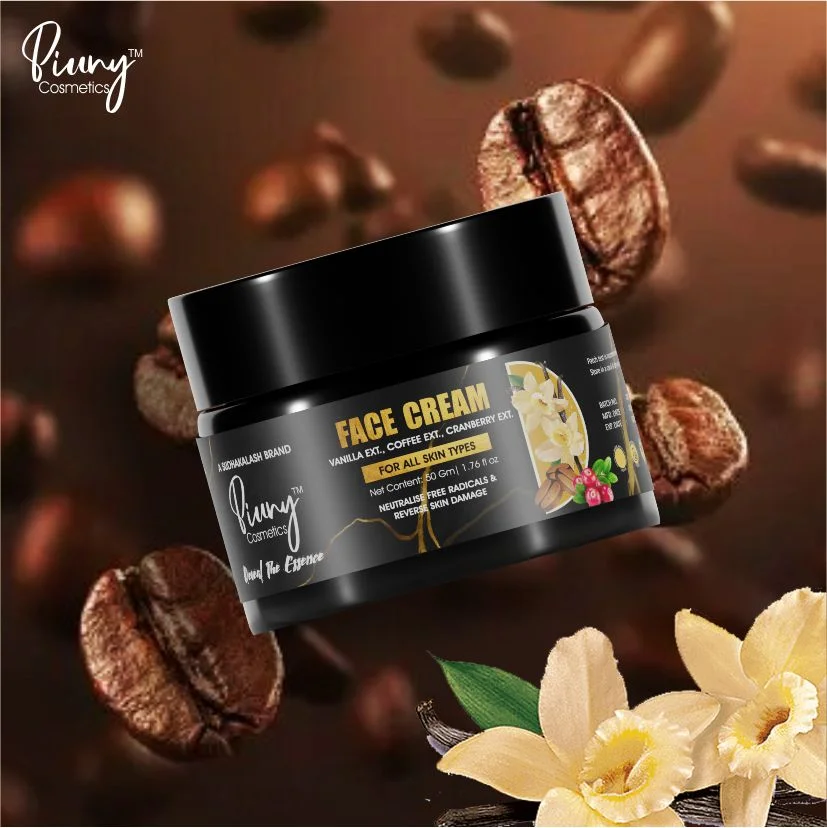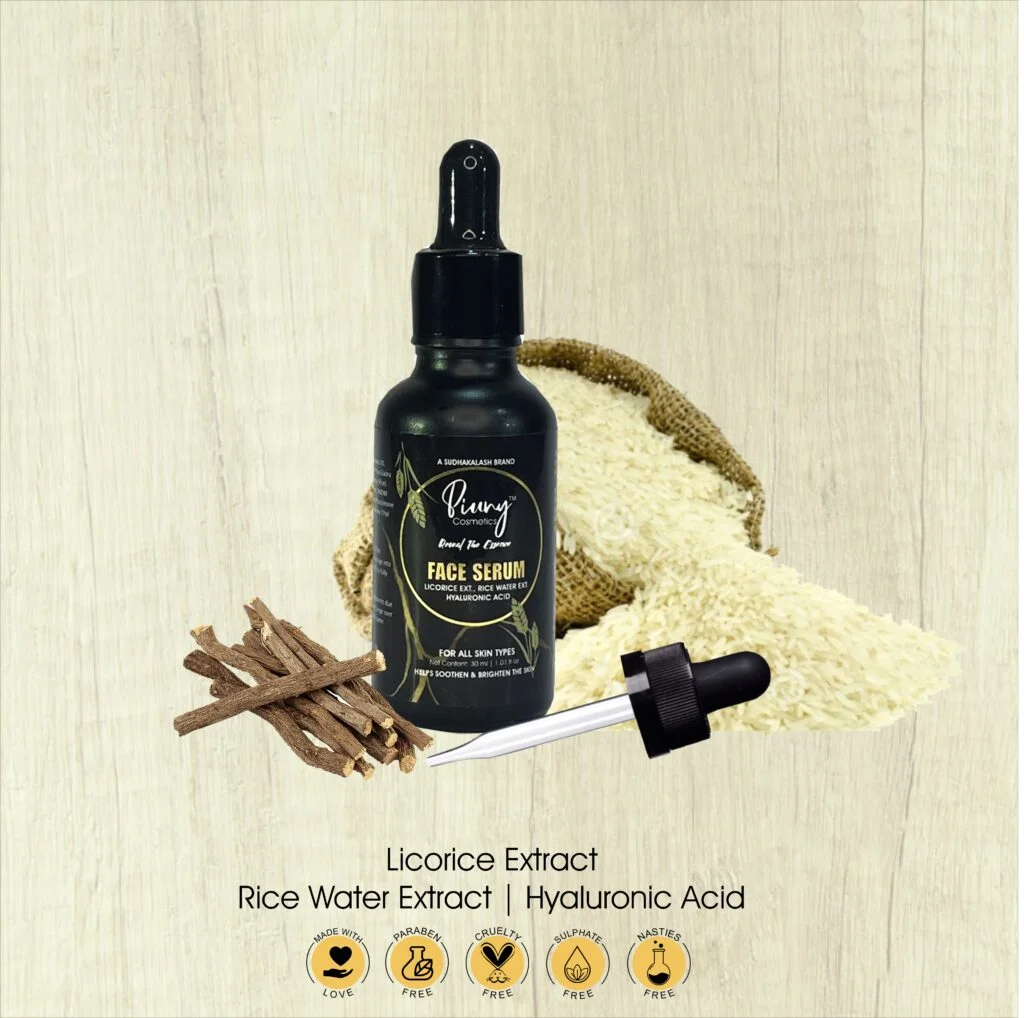Your cart is currently empty!

The Ultimate Guide to Sensitive Skin: Understanding Causes, Symptoms, and Triggers

In the realm of skincare, sensitivity is a common concern that affects individuals of all ages and backgrounds. Sensitive skin care can manifest in various ways, from occasional redness and irritation to persistent discomfort and inflammation. Understanding the intricacies of sensitive skin is crucial for developing effective skincare routines and minimizing potential triggers. Piuny Cosmetics gives a comprehensive guide, we will delve into the causes, symptoms, and triggers of sensitive skin care, shedding light on the nuances of sensitive skincare.
Section 1: Defining Sensitive Skin
Sensitive skin is a term used to describe skin that is prone to reactions such as redness, itching, burning, or stinging when exposed to certain stimuli. While sensitive skin can be influenced by both genetic and environmental factors, its exact cause remains elusive. However, several key factors contribute to the development and exacerbation of sensitive skin:
- Genetic Predisposition: Individuals with a family history of sensitive skin conditions, such as eczema or rosacea, may be more prone to experiencing sensitivity themselves.
- Impaired Skin Barrier Function: A compromised skin barrier can make the skin more susceptible to irritants and allergens, leading to increased sensitivity.
- Environmental Factors: Exposure to harsh weather conditions, pollution, UV radiation, and other environmental stressors can trigger sensitivity and exacerbate existing symptoms.
Understanding the underlying mechanisms of skin is essential for tailoring skincare routines and minimizing potential triggers.
Section 2: Recognizing the Symptoms of Sensitive Skin
Sensitive skin care can manifest in a variety of symptoms, ranging from mild to severe. Common symptoms include:
- Redness: Persistent or intermittent redness, often accompanied by warmth or a flushed appearance.
- Itching and Irritation: Uncomfortable sensations of itching, tingling, or burning, which may be triggered by certain products or environmental factors.
- Dryness and Flakiness: A lack of moisture and hydration, resulting in dry, flaky patches of skin that may feel tight or uncomfortable.

- Inflammation: Swelling, tenderness, or inflammation of the skin, which can occur in response to irritants or allergens.
- Breakouts: Acne-like breakouts, characterized by red bumps, pustules, or cysts, may occur as a result of sensitivity to certain ingredients or hormonal fluctuations.
Recognizing these symptoms is essential for accurately diagnosing sensitive skin and implementing appropriate skincare strategies.
Section 3: Identifying Common Triggers of Sensitive Skin Reactions
- Harsh Skincare Ingredients: Ingredients such as alcohol, fragrances, sulfates, and certain preservatives can strip the skin of its natural oils and disrupt its barrier function, leading to sensitivity.
- Environmental Factors: Exposure to extreme temperatures, dry air, wind, pollution, and UV radiation can exacerbate sensitivity and trigger inflammatory responses.
- Allergens: Allergens such as pollen, pet dander, dust mites, and certain foods can provoke allergic reactions in sensitive individuals, resulting in skin irritation and inflammation.
- Stress: Psychological stress can impact the skin’s barrier function and immune response, making it more prone to sensitivity and exacerbating existing symptoms.
- Hormonal Changes: Hormonal fluctuations, such as those that occur during puberty, menstruation, pregnancy, or menopause, can influence skin sensitivity and trigger breakouts or flare-ups.
By identifying and avoiding common triggers, individuals with sensitive skin can minimize the risk of reactions and maintain a healthy, balanced complexion.

Section 4: Developing a Gentle Skincare Routine for Sensitive Skin
Creating a gentle skincare routine is paramount for individuals with sensitive skin care. Key considerations include:
- Cleansing: Use a gentle, fragrance-free cleanser to remove dirt, oil, and makeup without stripping the skin’s natural oils or causing irritation.
- Moisturizing: Choose a lightweight, non-comedogenic moisturizer formulated with soothing ingredients such as hyaluronic acid, ceramides, and niacinamide to hydrate and protect the skin barrier.
- Sun Protection: Apply a broad-spectrum sunscreen with SPF 30 or higher every day to shield the skin from UV radiation and prevent sunburn and premature aging.
- Avoiding Irritants: Read product labels carefully and avoid skincare products containing potentially irritating ingredients such as alcohol, fragrances, dyes, and essential oils.
- Patch Testing: Before using a new skincare product, perform a patch test on a small area of skin to check for any adverse reactions or sensitivities.
By adopting a gentle skincare routine tailored to sensitive skin, individuals can minimize irritation and promote skin health and resilience.
Section 5: Navigating the Complexities of Sensitive Skincare
skin care presents a unique set of challenges and considerations in the realm of skincare. By understanding the causes, symptoms, and triggers of sensitivity, individuals can develop tailored skincare routines that promote skin health and resilience while minimizing the risk of adverse reactions. Through diligent care, avoidance of potential irritants, and adherence to gentle skincare practices, individuals with sensitive skin can achieve a healthy, balanced complexion and enjoy greater comfort and confidence in their skin.
Sensitive Skincare Products
- Cleansers: Gentle, fragrance-free cleansers that effectively remove dirt, oil, and makeup without stripping the skin’s natural oils or causing irritation. Look for mild, pH-balanced formulas that leave the skin feeling clean and refreshed.
- Moisturizers: Lightweight, non-comedogenic moisturizers enriched with soothing ingredients like hyaluronic acid, ceramides, and niacinamide to hydrate and protect the skin barrier. These moisturizers help maintain optimal moisture levels without clogging pores or exacerbating sensitivity.


- Sunscreen: Broad-spectrum Sunscreens with SPF 30 or higher that provide effective protection against UV radiation without causing irritation or triggering allergic reactions. Opt for fragrance-free, hypoallergenic formulas that are suitable for sensitive skin and offer long-lasting sun protection.
- Treatments: Piuny Cosmetics provide you Targeted treatments such as serums, masks, and spot treatments formulated to address specific concerns like redness, inflammation, and irritation. Look for products containing soothing botanical extracts, anti-inflammatory agents, and antioxidants to calm and heal sensitive skin.
- Makeup: Hypoallergenic, non-comedogenic makeup products specially designed for sensitive skin, including foundations, concealers, and powders. These products are free from common irritants and allergens, providing natural-looking coverage without exacerbating sensitivity.


Conclusion
This comprehensive guide aims to provide readers with a thorough understanding of sensitive skin care, covering key topics such as causes, symptoms, triggers, and skincare routines tailored to skin. With a focus on gentle, non-irritating skincare practices, this guide empowers individuals to manage their skin effectively and achieve a healthy, balanced complexion.
triggers of sensitive skin, you can take proactive steps to manage and alleviate symptoms effectively. With the right skincare routine, lifestyle modifications, and avoidance of irritants, you can restore balance and comfort to your sensitive skin, allowing its natural beauty to shine through.
Remember, every individual’s skin is unique, so it may take some trial and error to find the approach that works best for you. Stay vigilant, listen to your skin’s signals, and don’t hesitate to seek professional guidance if needed. With proper care and attention, you can achieve a healthier, more resilient complexion and enjoy the confidence that comes with radiant, sensitive skin.




Leave a Reply